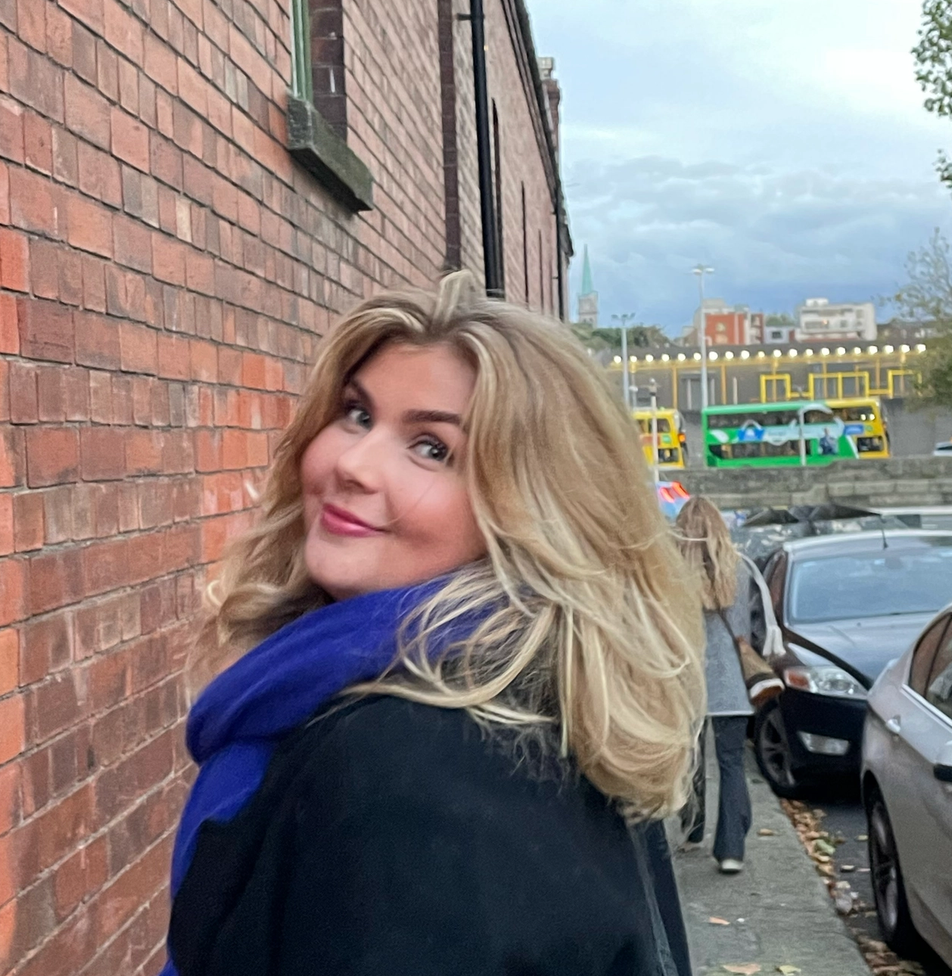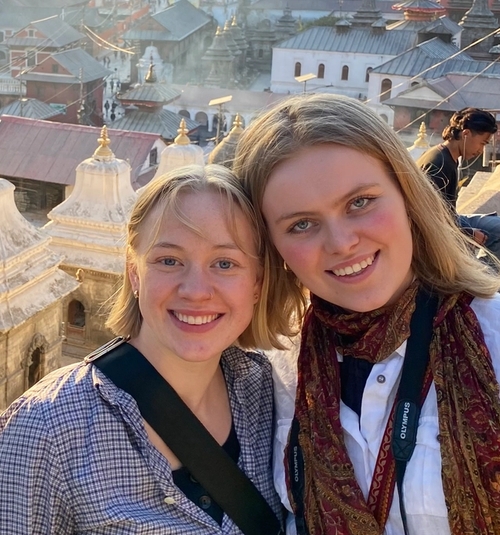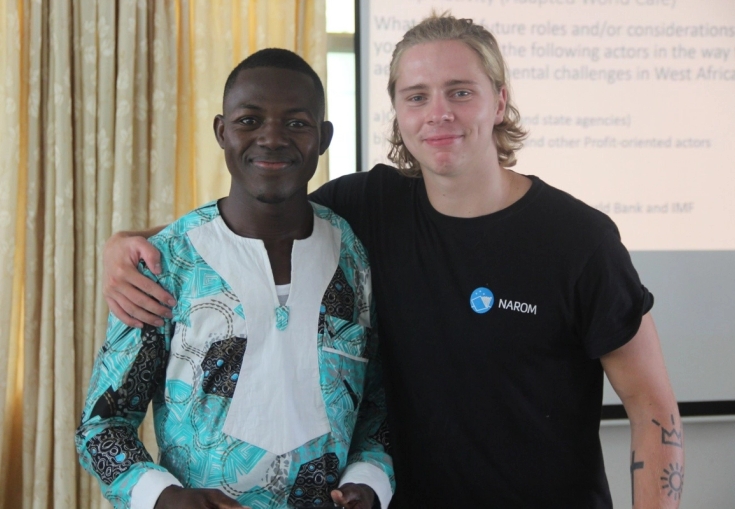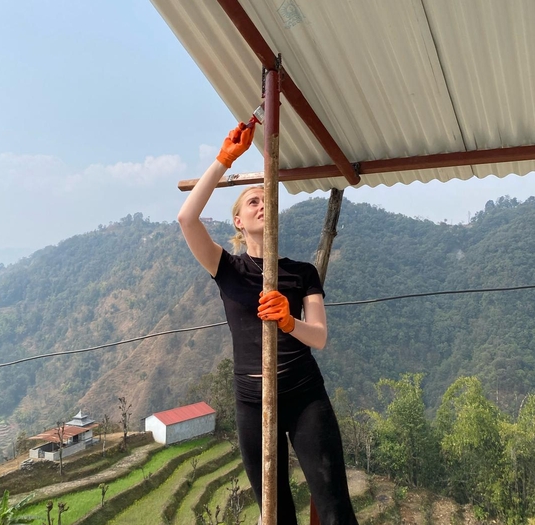
Building a safe house in Pokhara
If you choose peace and conflict studies in Nepal, you will have many opportunities to learn outside the classroom as well. There are many chances to learn more about society by actively participating in various organizations. By volunteering, we can contribute to the local community while learning a lot about culture and society.

This text is translated using AI.
View the original article here.A good example of this was when we all went to help build a safe house – Safe House – about an hour away from Lakeside Pokhara where we live and study.
On this day, we should all contribute to the organization Chetana Women’s Skill Development Programme. This is a non-profit organization that engages many volunteers in Pokhara.
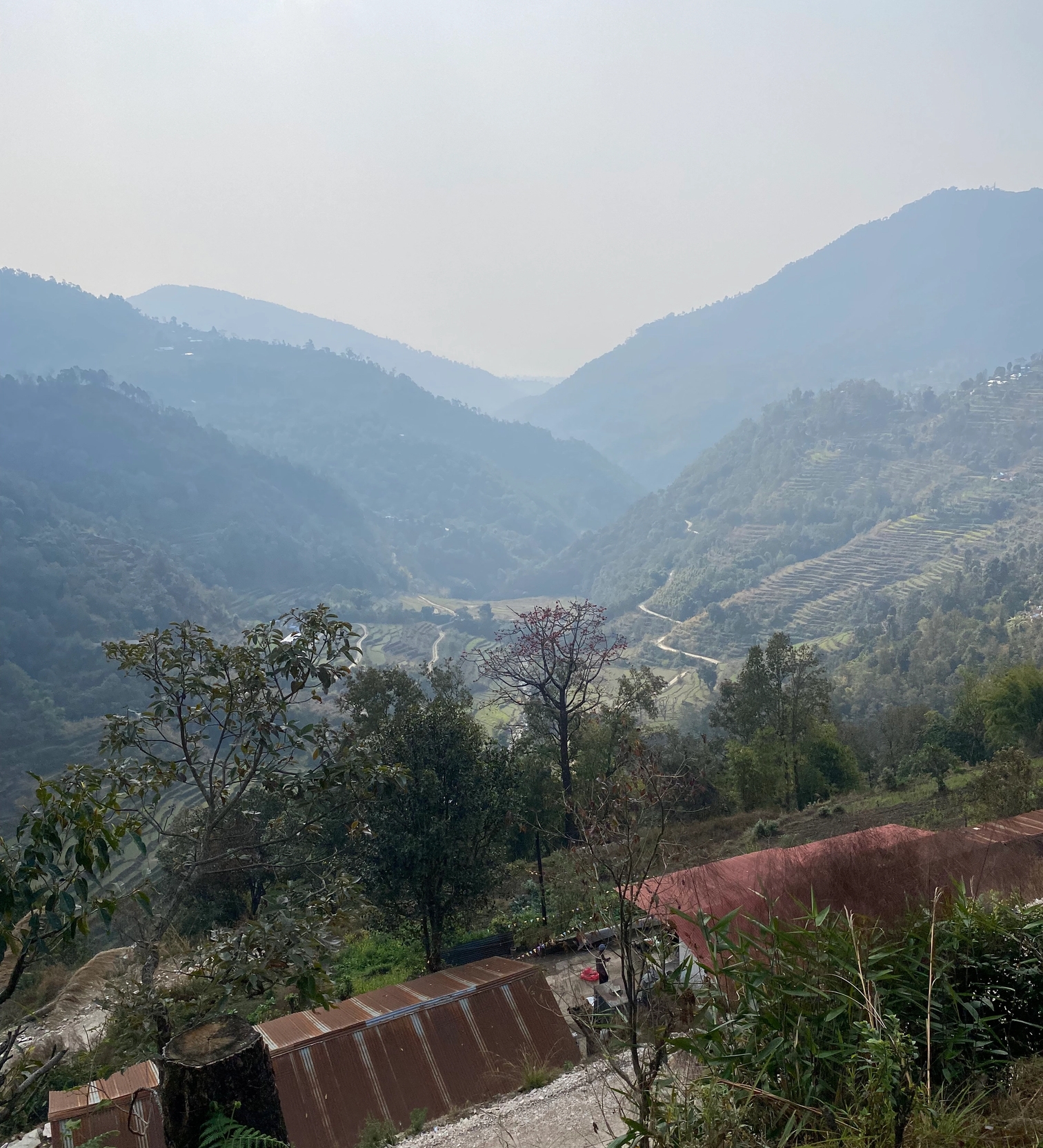
Chetana works with and for women who find themselves in vulnerable positions, either economically or socially. This includes widows, women with disabilities, women who have been subjected to abuse, and women who are vulnerable in other ways.
As a student in Pokhara, Kulturstudier helps you get in touch with the organization, so that you can also contribute or get more information about their work and, not least, learn about the importance of what they do. The great thing is that one can contribute in many ways and to whatever extent one wishes.
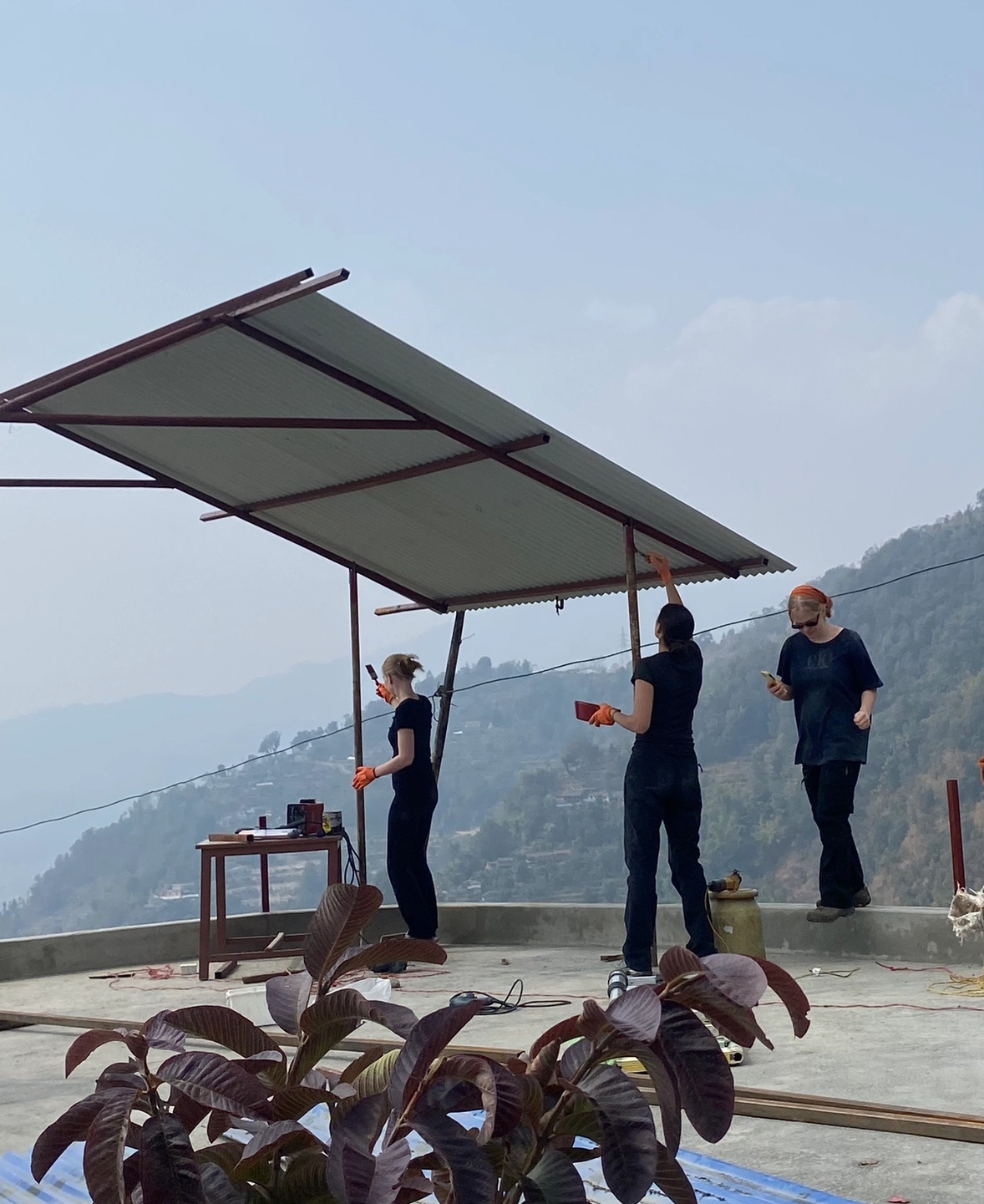
During our day at Chetana's 'safe house', it's undeniable that there was a significant amount of physical labor. We carried extreme amounts of stone that day – and even though this may not seem like the most profitable work, there is a lot to be gained from it.
I can reassure future students who choose to help out here that we are now done carrying stones, so you won't have to do that.
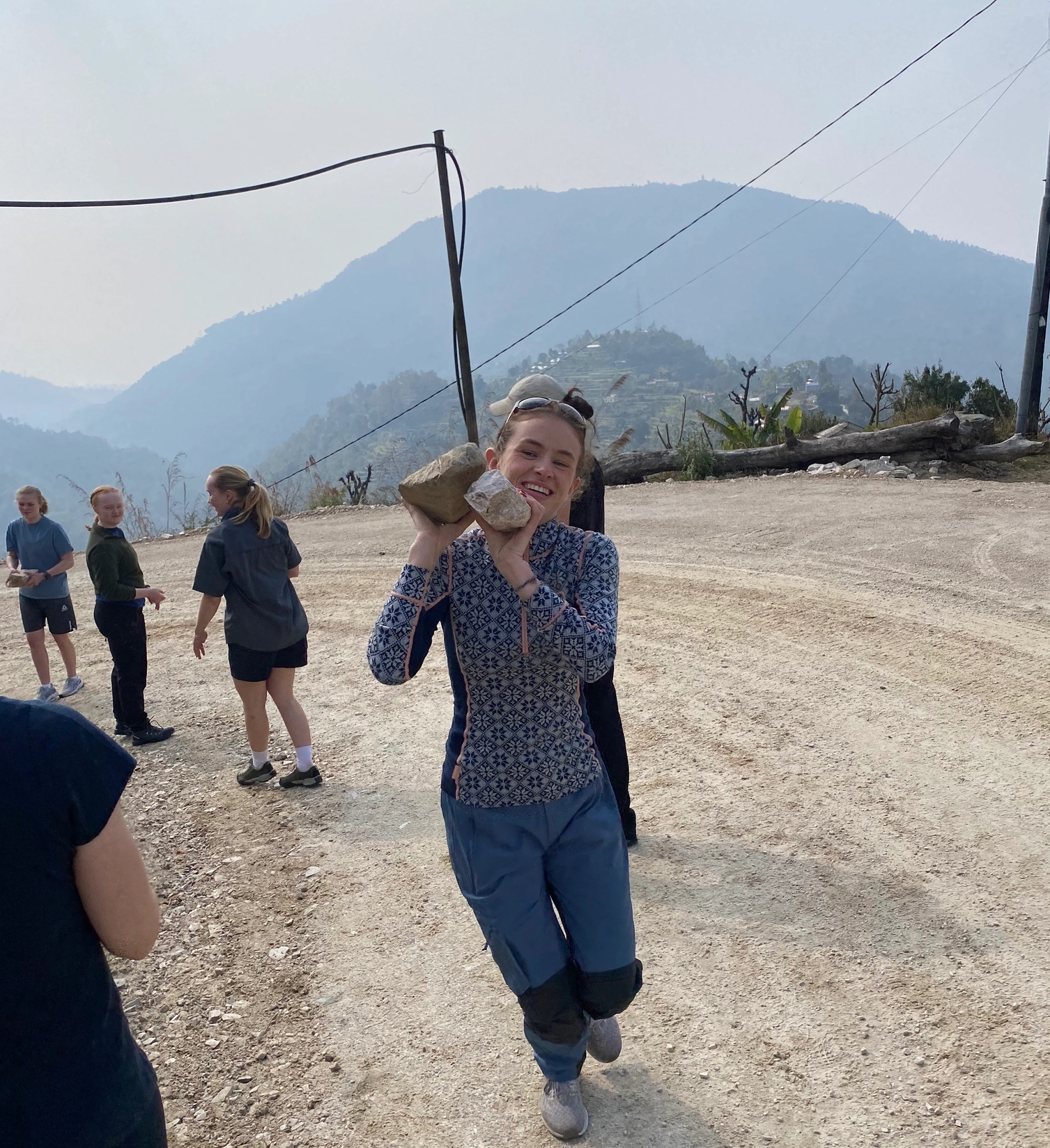
It is never just about carrying stones. While we moved stone after stone in a sort of chain, we got to hear stories about the local community in Pokhara and the need for this house.
Some stories and cultural exchanges are more enjoyable. It's a great opportunity to exchange amusing remarks about the differences in each other's cultures. Other stories are more somber, and illustrate a society with various challenges.
A community that receives assistance from organizations and other contributors, a community that, like most societies, struggles with groups that are marginalized.
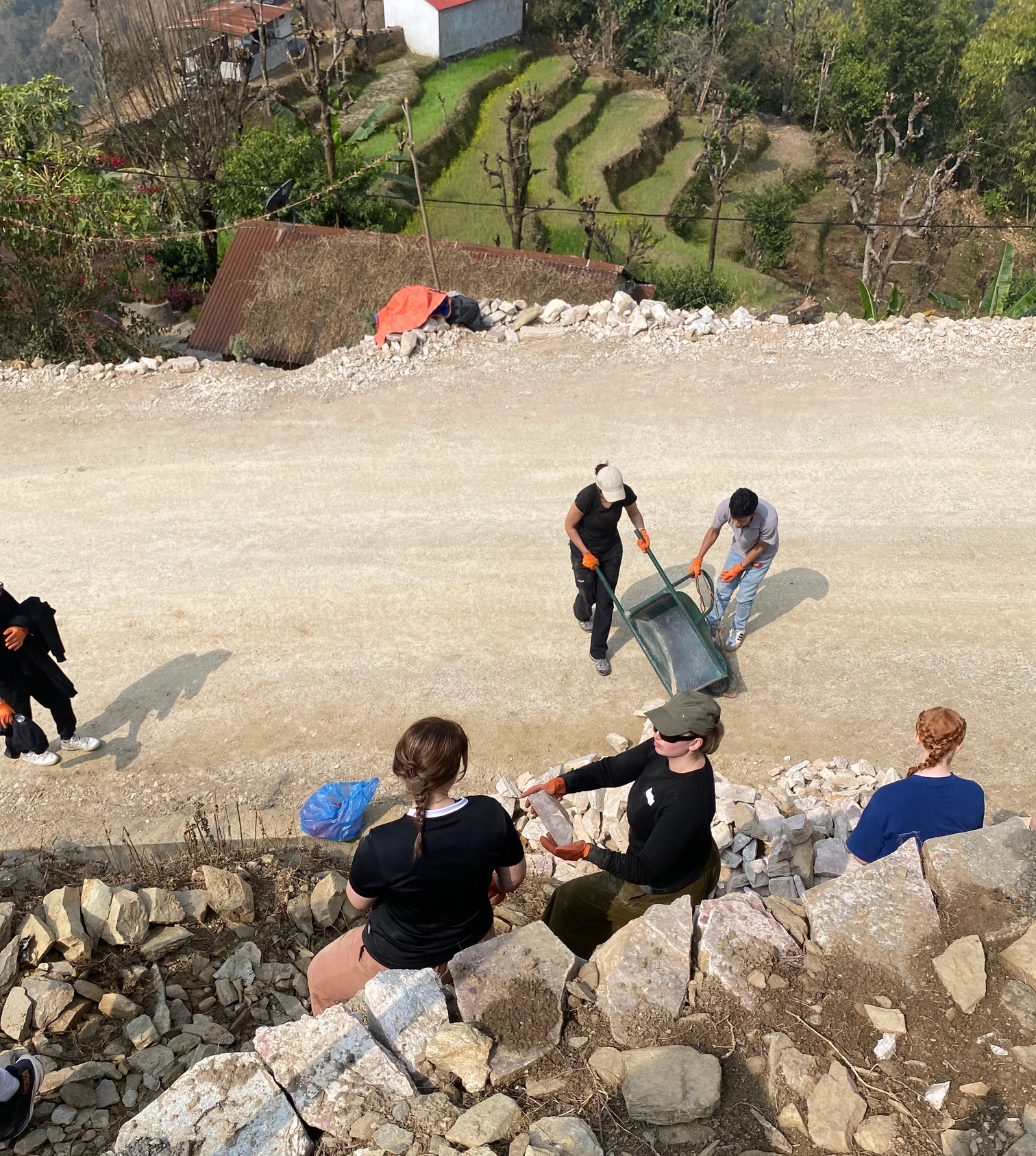
Pabita, the woman behind Chetana, told us about several women who have been given the opportunity to learn skills, especially in sewing and other handicrafts, which in turn has enabled them to generate an income for themselves and thus a livelihood for their family.
Furthermore, we heard wonderful stories about how Chetana works with the children at local schools to promote mental health among the younger generation. They also work preventively.
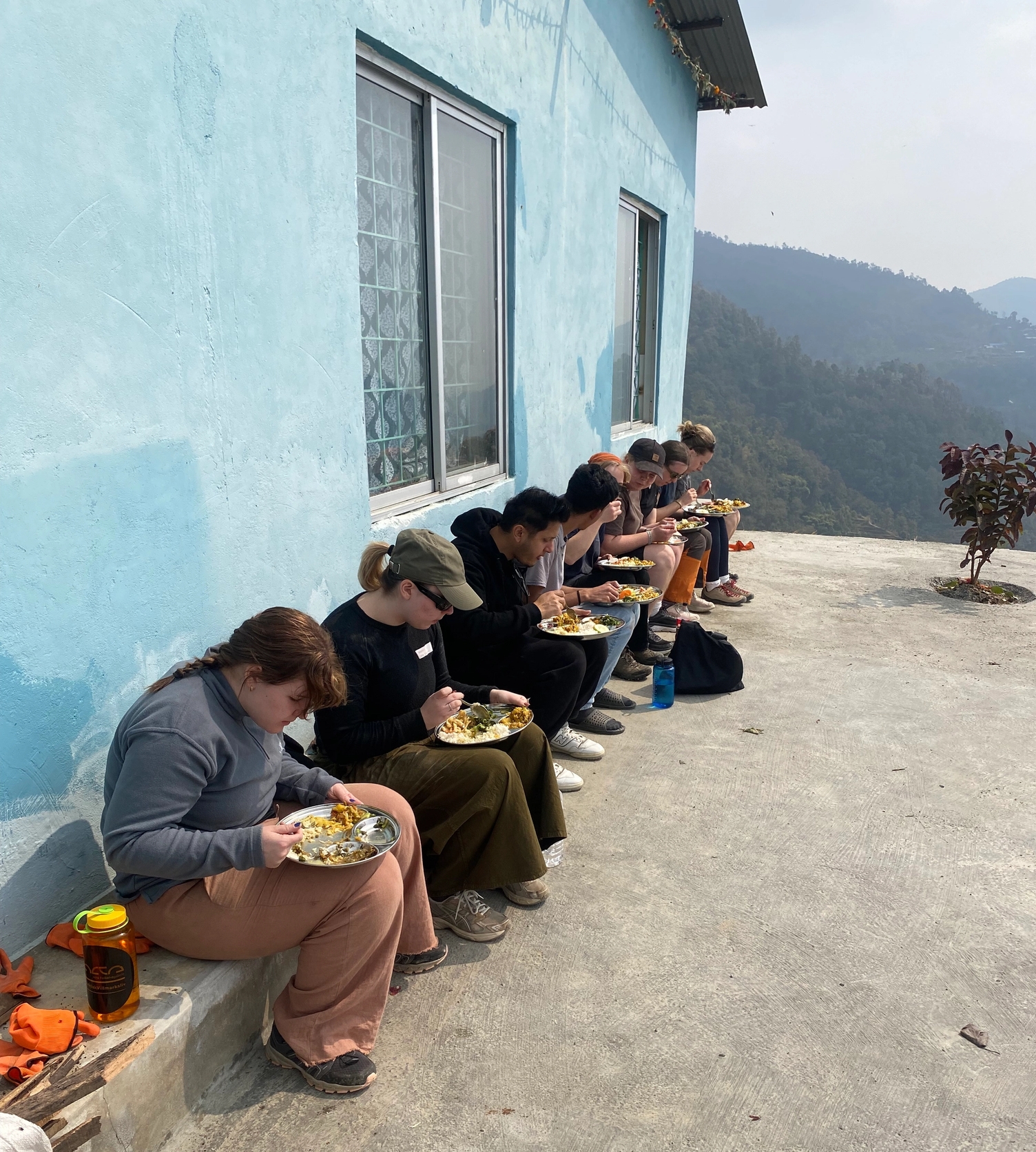
Mental health is not a topic that receives much attention in Nepal, especially among the young. Pabita, her team, and some students from here went, among other things, to observe and learn more about the school in Nepal and how organizations work with youth in schools.
Back to Safe House: this is a house that will fulfill a need in the community that is not met by other services. Safe House will open soon, and will be a safe place for girls who cannot live at home with their family or feel unsafe there.
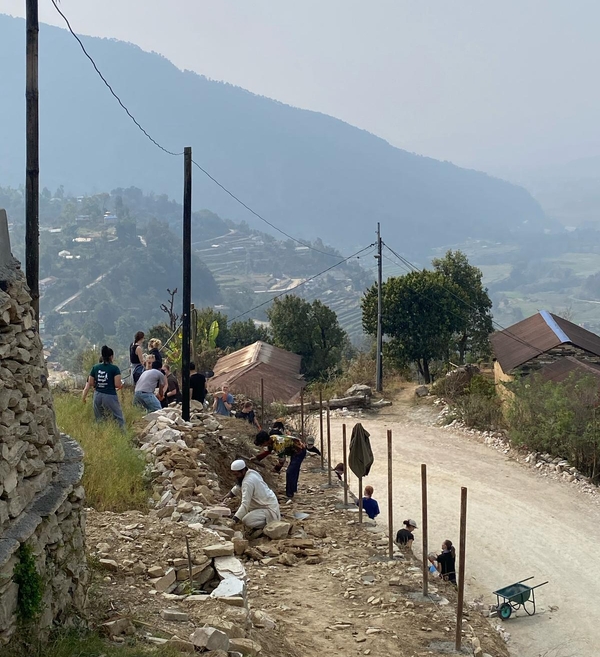
It should be a place that creates a sense of security. The house is largely built on volunteer work and based on voluntary donations. Therefore, the eagerness to work of a large group of Norwegian students was of great help.
This is just an example of a way one can contribute to and learn more about the local community.
There are many other opportunities and it's very easy to get to know the locals, who are super friendly, and we found that the exchange was very beneficial for both us and the organization we worked for.
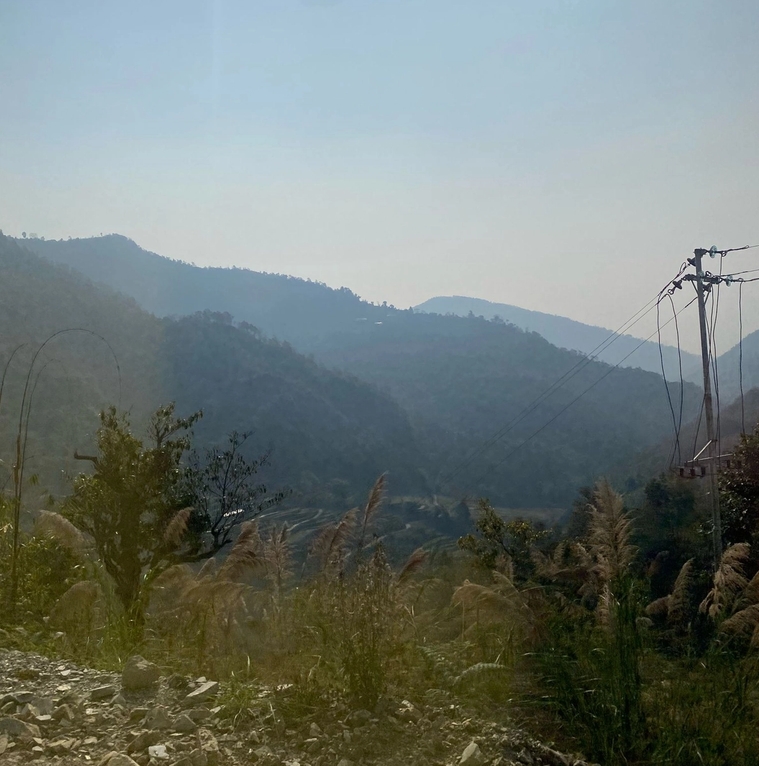
The moral of this story is at least that the local population is very open and cooperative – and that by studying peace and conflict studies in Nepal, there are many opportunities to learn, also outside the classroom.
